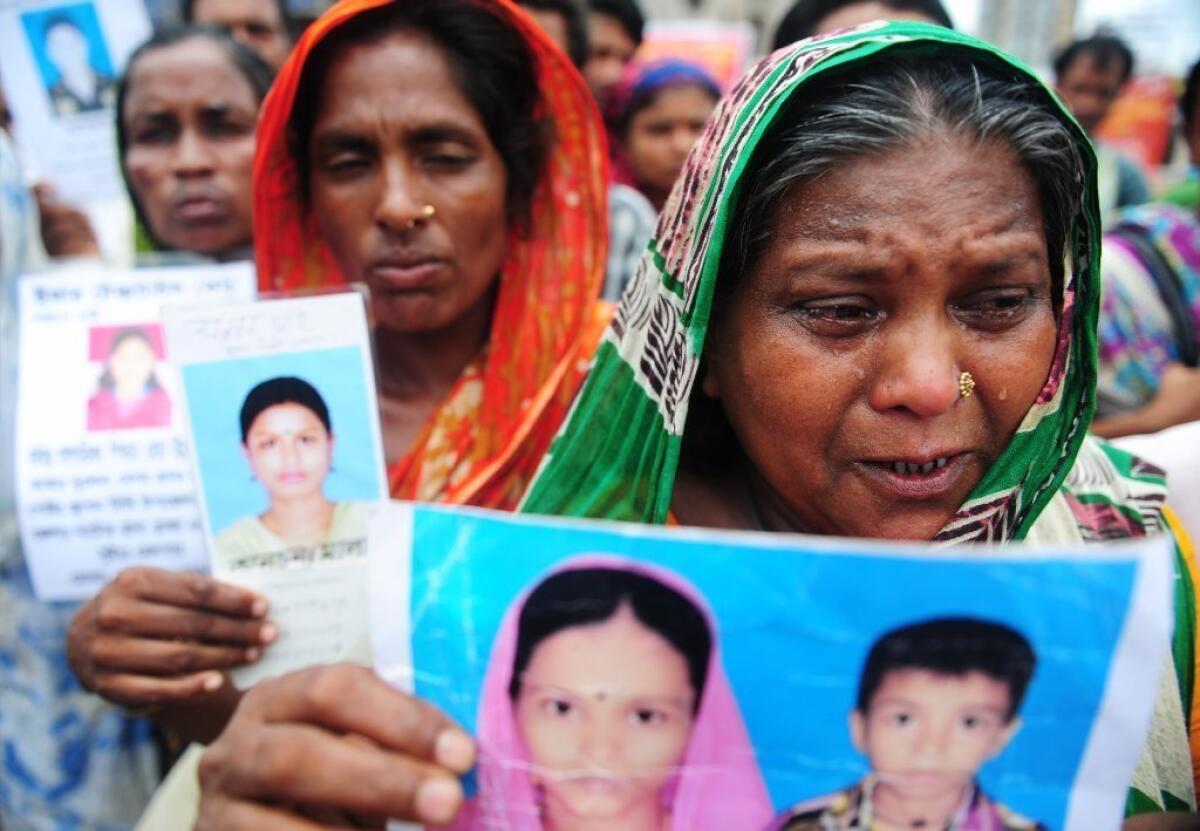Obama’s tariff punishment doesn’t solve the Bangladesh problem

- Share via
Clothing made in Bangladesh, the country’s primary export and the product implicated in more than 1,200 workplace fatalities in the last year, won’t be covered by President Obama’s suspension of trade privileges for that country’s goods -- because those products do not receive the special tax breaks to start with.
It’s natural to want to do something about a nation and an industry that have shown wanton disregard for the most basic kinds of safety measures, but it’s unclear that this is the kind of measure that will matter.
The suspension imposes tariffs on thousands of other products from Bangladesh that are now duty-free, such as fishing equipment. But those 5,000 products cover less than 1% of the goods the country exports here.
The action sends a message, but will it persuade the Bangladeshi government, which has talked a good game but been heedless in its actual approach to worker safety, to finally take real action? Quite possibly, its major effect will be to harm sectors of the economy that haven’t been involved in the terrible safety scandals and to reduce the number of jobs without fixing the unstable buildings and firetraps in which many textile workers labor.
A better solution might have been to seek a dramatic tariff increase on Bangladeshi garments, but suspend it for a period of time to allow the government and manufacturers to show that they are reforming abusive conditions, while forging agreements with the European Union to take similar action. European nations do give special trade status to Bangladeshi clothes and buy more than half of the nation’s textile exports.
And at least the actions have direct connections; the only reason the garments are sold for practically giveaway prices in the United States is because retailers and clothing companies here continually force overseas manufacturers to shave down their prices.
Bangladeshi employees have been ordered into buildings that had just been declared unsafe or kept from leaving their posts when fire broke out. The April collapse of a factory killed more than 1,100 workers, leading to new pressure on the president to get involved.
We certainly need to do more than wring our hands and then ignore where and how our $3 shirts are made. But trade diplomacy is a touchy matter that must be approached carefully, and when action is taken, it must at least pinpoint the problem in direct and effective ways.
ALSO:
An African epidemic of homophobia
Come home, Ed Snowden, and face the music
Why the NFL and NBA should help promote Obamacare
More to Read
A cure for the common opinion
Get thought-provoking perspectives with our weekly newsletter.
You may occasionally receive promotional content from the Los Angeles Times.










